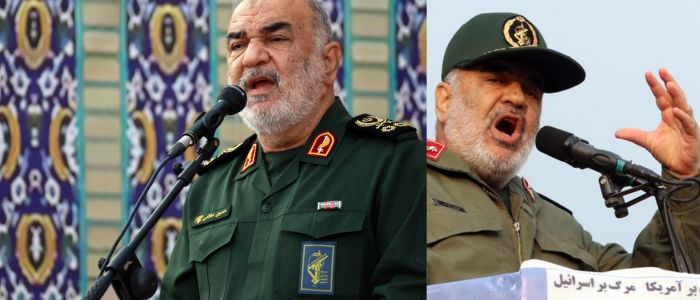
Israel launched sweeping raids on Iranian soil, supposedly hitting key nuclear sites, ballistic missile installations and top military commanders. Those killed included Mohammad Bagheri, chief of staff for Iranian armed forces; Gholamali Rashid, deputy commander of the Iranian military; and some nuclear scientists. The strikes were carried out despite U.S. President’s warning not to sabotage nuclear talks.
Iran has since vowed to make both the U.S. and Israel pay a heavy price, leading to fears of a wider regional conflict.
A military history rooted in Iran’s revolutionary past
Hossein Salami (file photo) The tough-talking general joined the IRGC in 1980 during the Iran-Iraq war. He was appointed deputy commander in 2009 and commander 10 years later. A loud, pugnacious character throughout his career, he openly advocated war with Israel and the U.S. And in 2019, after an Israeli strike on Iranian targets in Syria, he announced that Iran would “wipe the Zionist regime off the political map.”
Following another Israeli bomb attack against the Iranian embassy in Syria in 2024 that killed two Iranian IRGC generals, Salami said in the wake of the assault that the would take revenge, and that “strong men will retaliate against the Zionist regime.”
Salami has been both UN Security Council and U.S.-sanctioned since the 2000s and had a role in both Iran’s military and nuclear programs. He saw Iran on the threshold of world status and tended to tout its military power. A day before the attack that killed him, he said that Iran was “fully ready for any scenarios” and warned that enemies should not compare Iran to “defenceless Palestinians.”
Decoding Iran’s Revolutionary Guard Corps
The Islamic Revolutionary Guard Corps was founded more than four decades ago to defend Iran’s Islamic system and serve as a foil to the regular army, which the leadership feared it could not fully trust. The IRGC, which has more than 190,000 active personnel, has its own army, navy and air force and answers directly to Iran’s supreme leader. It is difficult for other state institutions to challenge its authority.
The group oversees the country’s strategic weapons programs and commands the Basij Resistance Force, a volunteer militia that has been used to put down domestic unrest. It wields significant economic power, overseeing a third of Iran’s economy through related companies and major infrastructure contracts.
Regionally, the IRGC is a major player in foreign conflicts.
Its elite Quds Force assists allied groups in the Middle East, among them in Iraq, Syria, Lebanon, Afghanistan, the Palestinian territories and Yemen. Tehran has a long history of former IRGC members who have risen to senior positions in the Iranian government and parliament, led by former President Mahmoud Ahmadinejad and ex-parliament speaker Ali Larijani.
The death of Salami, who was a confidant of Iran’s supreme leader, is a major setback for the leadership of the Revolutionary Guards, and adds new instability to the region.









